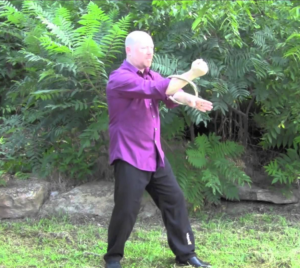For this Wing Chun interview, we sat down with Sifu Tyler Rea and asked him a few questions about when he first started training.
How does modern training compare to when you first started?
There’s a strange dichotomy that exists today, which I’m unhappy to accept, but still  shapes the way I teach. In today’s world, martial artists are blessed to have at their disposal an impressive range of training methods. Many of these methods fall outside the purview of traditional training but are beneficial nonetheless. We have advanced training equipment, methods of managed nutrition, and supplementary exercise, but a shockingly poor level of martial knowledge compared to the past.
shapes the way I teach. In today’s world, martial artists are blessed to have at their disposal an impressive range of training methods. Many of these methods fall outside the purview of traditional training but are beneficial nonetheless. We have advanced training equipment, methods of managed nutrition, and supplementary exercise, but a shockingly poor level of martial knowledge compared to the past.
Asian martial artists and historians were lamenting this fact as far back as the mid 1800s, but the problem has grown exponentially in the last two or three generations. This impoverishment in martial knowledge can be traced to four primary sources: the first Opium War and the Boxer Rebellion in China, the Cultural Revolution (which was anything but), and, in modern times, video games.
Within the spectrum of The Good, the Bad, and the VERY Ugly we’re faced with the following:
THE GOOD
On one hand we have greater dissemination of fragmentary martial knowledge through venues like Youtube. We’re seeing an ongoing interest in martial preservation by a dedicated generation of teachers, including anthropological investigations revealing the ways Martial knowledge was encoded and transmitted in the past.
THE BAD
There are far too many people sharing knowledge that they have not spent enough time cultivating, so in desperation they augment their lack of skill by chemical means and steroids.
AND THE VERY UGLY
MMA brings together the animated corpses of a variety of sport arts (not combat arts) with methods of strength training that are often damaging to long-term health. MMA has the potential to be a great revitalizing force for the martial arts, but only if its practitioners become as interested in learning as they are in winning. I’d like to sight two Masters particularity that exemplify refined and powerful martial structure that has nothing to do with brute force.
Sifu Chu Shong Tin of Wing Chun and Chen Tai chi Practical Method Sifu Chen Zhong Hua. Each of these Master are a fine examples of Martial mechanics for all to strive toward in Martial cultivation.
Final thoughts
First off, we would like to thank you Sifu Rea for answering our questions. If you enjoyed this interview, remember to check out Sifu Rea’s course in Wing Chun University.
